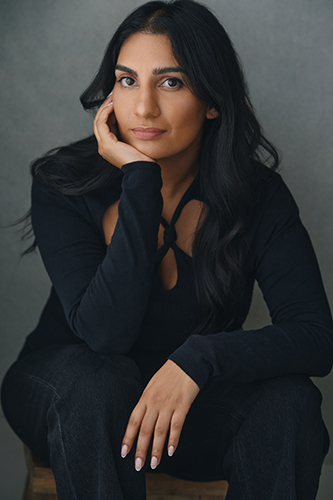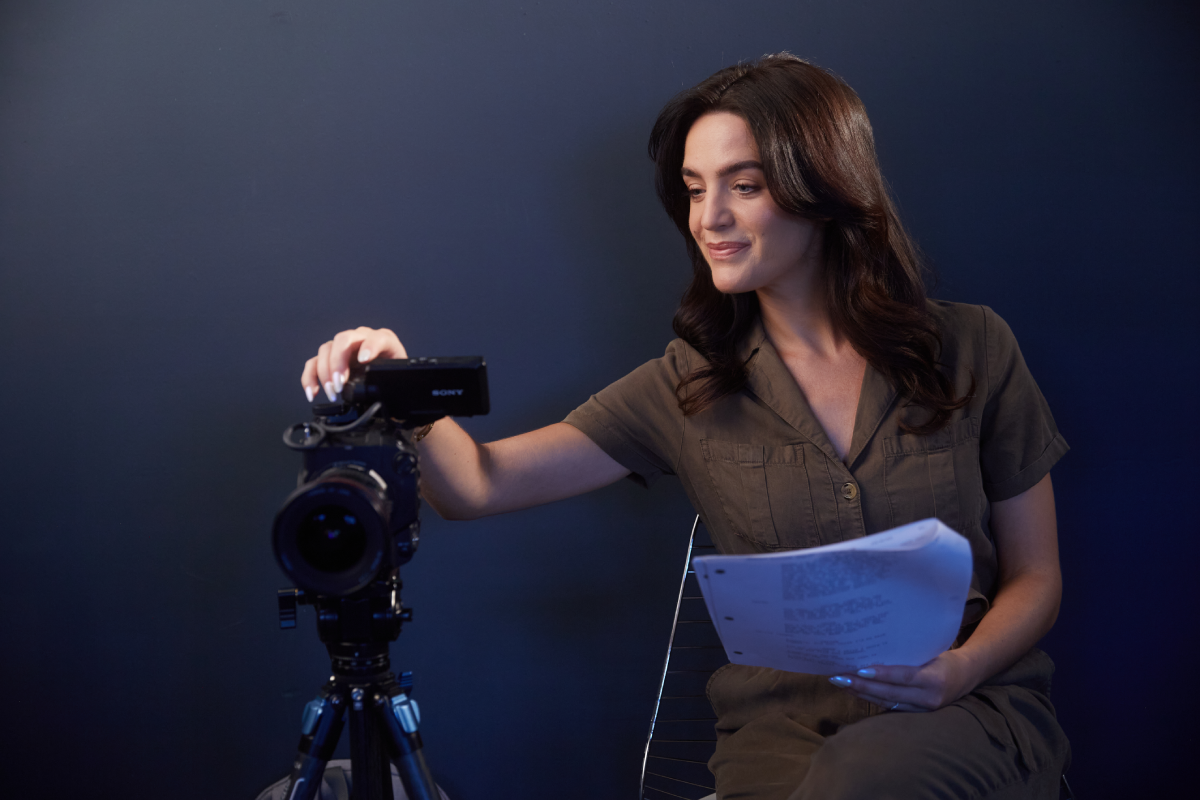How to get an agent in the US and the difference between an agent and a personal manager.
Actors are inspired daily by the television, film, and theatre they see. With many of these productions being made in the US, America can be seen to offer a wide range of opportunities for British actors.
Actors Gina Yashere (Bob Hearts Abishola), Tom Holland (Spider-Man: No Way Home, Uncharted) and Spotlight member Riz Ahmed (Nimona, Four Lions) are some examples of the success British actors can experience in Hollywood.
If you want to open the doors of opportunity and have the chance to work across multiple continents, then seeking representation in the US is the first step you need to take.
Why do I Need an Agent in the US?
The US entertainment industry is primarily based in Hollywood. There, the productions are bigger, the casting directors are considered dream-makers, and the actors inspire many aspiring performers. However, it’s important to remember how vast and competitive this industry is. Naturally, you will need an agent to help you navigate it.
One of the biggest reasons for having US representation is to cast a wider net for auditions. If you have an agent in the UK, you may have already auditioned for projects that are US-based or produced by American companies. However, US-based agents are more likely to have strong industry connections to the US-based casting directors posting these roles.
How to Find an Agent in the US
Finding an agent in the US can seem daunting if you don’t know how to approach the US market. Most US agencies operate in the same way as the UK, so you don’t have to steer too far away from what you know. However, there are a few differences and added components to be aware of:
- Contact by Mail
Some agencies accept submissions by post, so you can print your headshot and cover letter and mail it directly to their offices. However, some don’t accept unsolicited mail. - Industry Showcase Services
In the US, you can audition and sign up for a paid service to participate in an industry showcase. These services act as a direct route to allow your work to be seen by agents and casting directors. - Commercial Divisions
Bigger agencies in the US will have separate divisions for their commercial clients and their television and film clients, so you can sign to an agency and transition to a different division or belong to multiple divisions. This is a great way to work your way into a top US agency.
The US industry is competitive, and when seeking representation, it can be difficult to get seen among hundreds of actors who are also looking for an agent. To give yourself the best chance of finding an agent, you need to be well-prepared and understand what you’re actually looking for.
- Start by creating a list of agencies you want to contact, found using online research or word of mouth.
- Include contact details and note how each agency likes to be contacted and/or if they’re referral only.
- Before contacting agencies, make a list of materials you will need, including headshots, personalised cover letters, and a showreel.
Approaching an Agent in the US
When trying to find representation, preparing your materials and presenting them in a palatable way is very important. Agencies get hundreds of submissions daily, so it can be difficult to stand out. However, if you present your materials in an easily accessible way, you’re more likely to get an agent to actually look at the contents.
The requirements of each agency will vary, but generally, you will need:
- An up-to-date headshot – don’t worry if this is with a UK photographer. If a US agency signs you, they may advise you to use a US photographer at a later stage.
- A cover letter that details who you are, the work you’ve done, why you’re seeking representation and why you think the agency will be a good fit.
- To include links to your work with a resume, showreel, Spotlight profile and personal website (if you have one). If you’re emailing an agency, include these links in the body of the email and not as separate attachments.
- To include any accolades or awards you have, note any successful projects or critics’ reviews that mention your work and any selected credits you think will help you get their attention.
- Be sure to write about why you’re looking for US representation and whether or not you have a visa. Also, mention if you have a UK agent and what you hope to gain by signing with this particular agency.
What’s the Difference Between Agents and Personal Managers?
Many actors in the UK are more likely to have an agent, but in the US, it’s common practice to also have a personal manager. An agent will find you work, send you to auditions and callbacks and take a fee for any work you book. A personal manager might also send you to auditions, but they’re primarily working on your career in an advisory manner. They are there to look out for you as a client by negotiating contracts and providing career guidance, but they might still charge a fee for the work you book.
If you’re unsure why you’d need a personal manager, it’s best to start with getting an agent. Think of it this way: If your goal is to get auditions in the US, look for an agent. Once you’ve got the work and are in a position to map out your career with a more tailored approach, look into getting a personal manager who can offer you that experience.
Key Things to Remember When Looking for a US Agent:
Follow Submission Guidelines
When looking for an agent in the US, pay attention to the submission guidelines and materials they ask for when submitting. Give them exactly what they ask for, no more, no less. Not every agency will ask for the same requirements, but it’s your job to provide them with the items they asked for.
This not only helps keep them organised when going through actor submissions for representation, but also informs them of who gets looked at and who doesn’t. They want to make sure that the actors they represent are paying attention to details. Providing too much or too little information is a sure way to end up in the discard pile.
Don’t Send Mass Emails
The quest to find an agent might tempt you to send out as many submissions as possible, with the intention of improving the probability of finding representation. This almost never works, so be specific.
Agencies will appreciate potential clients who have done their research and taken the time to write a personalised cover letter. Putting in the extra effort will pay off – think quality over quantity.
Be Honest About What You Want
When meeting with representation in the US, it’s important to be clear about what you want. If you’re not based in the US, be honest about that and if you have intentions to move, let them know. It’s essential to any good working relationship to demonstrate your needs as early as possible.
Really think about what you want from this agency and ask if they’re willing to offer you that. If you want to stay in the UK but are open to travelling, make that as clear as possible. Looking for representation is, in any case, about you and what you want your career to look like.
Be Vigilant
The legality of representation in the US and the UK differ in some instances, but it’s best to be cautious. Any agent or manager you sign with should only take a fee from the work you book once you’re their client.
Many US agencies will try to charge an upfront fee before signing you. This isn’t common practice and is something to be aware of. You may also want to look into whether agencies are entitled to a cut of any work you may find yourself.
If you’re unsure, ask someone to take a look at the contract before signing it. Remember: if it feels off, it’s better to make sure everything’s in order before signing anything.
Don’t Make Drastic Changes
Some agencies or personal managers may suggest career-enhancing changes. Superficial changes like cutting your hair or shaving your beard are all reasonable recommendations. However, changes that require a higher personal risk should be seriously reconsidered.
However, an agent shouldn’t ask you to change your name or hide a part of your identity. If they’re interested in you as a client, you should be able to be your authentic self and not have to make huge changes to fit in. Take any suggestions with strong rumination.
Overall: Representation is for You
As actors, we can often feel at the mercy of other people in the industry. Your search for representation is where you have some control over the trajectory of your career. The industry has changed so much within the last few years that we’re no longer confined to work where we live. Self-tapes have enabled us to be seen in ‘rooms’ we ordinarily couldn’t have entered.
The same principle can be applied to looking for representation in the US. Those agents can get you seen by casting directors all over the world and expand the opportunities you are given.
In your search, it’s important to remember that you’re looking for representation, which means your agent or manager should be someone on your team, willing to work and fight for you. Looking for representation in the US will only add members to your team who are there to embody the vision you have for how you want your career to unfold.
From all of us at Spotlight, a huge thanks to Karen Johal for sharing her knowledge with us!
Take a look at our website for more advice for acting in the USA and finding work overseas.
 Karen Johal is most notably known for playing Nicole Shelley in the award-winning Apple TV+ series Ted Lasso, starring opposite Jason Sudeikis, Brett Goldstein and Nick Mohammed. She currently stars in the BBC television series Phoenix Rise as Noreen Khan, starring opposite Paul Nicholls, Zita Sattar and Tyler Fayose. Karen’s film credits include: The Waves for MTV Entertainment directed by BAFTA award winner Sindha Agha; Frank’s Plan for Amazon Prime; and The High Performer for the award-winning digital creative We Are Tilt. She also starred in a global campaign for instant messaging platform WhatsApp with Broadcaster Alex Scott MBE and in a national Christmas commercial for retailer TK Maxx.
Karen Johal is most notably known for playing Nicole Shelley in the award-winning Apple TV+ series Ted Lasso, starring opposite Jason Sudeikis, Brett Goldstein and Nick Mohammed. She currently stars in the BBC television series Phoenix Rise as Noreen Khan, starring opposite Paul Nicholls, Zita Sattar and Tyler Fayose. Karen’s film credits include: The Waves for MTV Entertainment directed by BAFTA award winner Sindha Agha; Frank’s Plan for Amazon Prime; and The High Performer for the award-winning digital creative We Are Tilt. She also starred in a global campaign for instant messaging platform WhatsApp with Broadcaster Alex Scott MBE and in a national Christmas commercial for retailer TK Maxx.
In Theatre, Karen recently played the lead role in Ayad Akhtar’s The Who and the What at The English Theatre of Hamburg in Germany and has starred opposite Scottish actor Alan Cumming in the original musical Me and the Girls. She played the lead role in the regional premieres of David Harrower’s Blackbird and Duncan Macmillan’s People, Places and Things. Karen was also directed by Iqbal Khan in Mismatch, performing as part of the Sky Comedy Rep Festival at The Birmingham Rep Theatre in 2022.
Karen is a graduate of The American Academy of Dramatic Arts in Manhattan, New York where she performed on stage for The Public Theater at Shakespeare in the Park and at the world famous Carnegie Hall. She is currently working at the Birmingham Hippodrome on Research and Development for the play “I am the ghost of Quandeel Baloch” by Guleranna Mir.
Headshot credit: Andy Brown


















